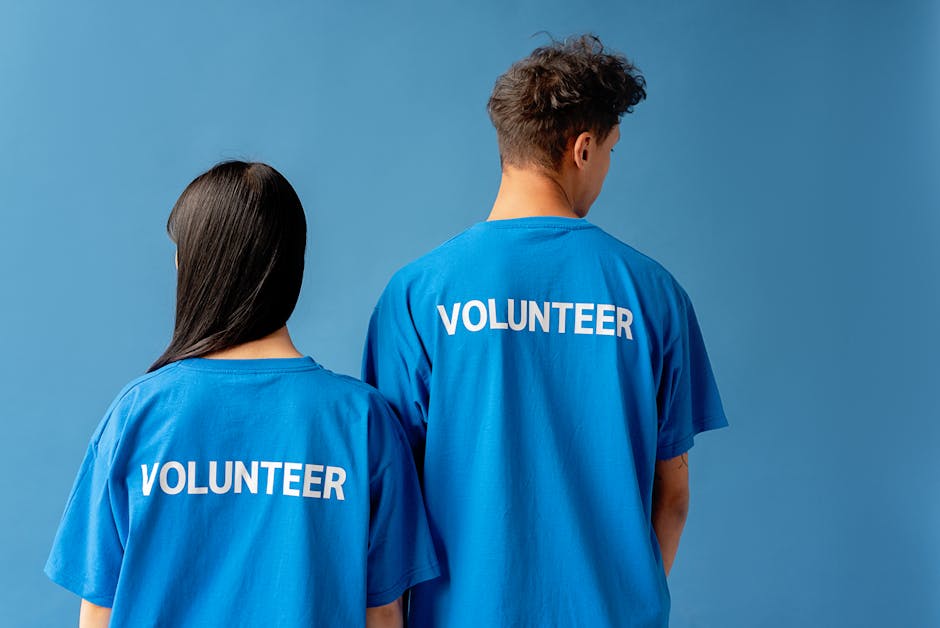Building strong friendships often starts with a simple gesture—a helping hand, a kind word, or a thoughtful action. Acts of service, when done with genuine care, can transform casual acquaintances into lifelong friends. They create a bond that words alone cannot achieve. If you’ve ever wondered how to deepen your connections or make new ones, this guide will show you how serving others can be the secret ingredient to meaningful relationships.
Key Takeaways
- Acts of service foster trust, empathy, and deeper connections.
- Volunteering and community involvement are great ways to meet like-minded people.
- Small, consistent gestures of kindness can strengthen friendships over time.
- Personalizing acts of service makes them more impactful.
Introduction to Building Friendships Through Acts of Service
The importance of acts of service in fostering deeper connections
Friendships thrive on mutual care and effort. When you go out of your way to help someone, it shows that you value them. Acts of service—whether big or small—demonstrate kindness and reliability, two cornerstones of any strong relationship.
Think about it: Who wouldn’t appreciate a friend who helps them move, listens when they’re down, or surprises them with their favorite coffee? These actions speak louder than words, creating a bond that feels genuine and lasting.
How acts of service create a sense of community
When you serve others, you’re not just helping individuals—you’re contributing to a larger sense of belonging. Communities thrive when people look out for one another. Whether it’s volunteering at a local shelter or organizing a neighborhood cleanup, these shared experiences bring people closer.
By participating in acts of service, you’re not only building friendships but also fostering a supportive environment where everyone feels valued.
Overview of the benefits of serving others in building relationships
Serving others has a ripple effect. It boosts your mood, strengthens your social skills, and creates opportunities to meet people who share your values. Plus, it’s a great way to practice empathy and understanding—qualities that are essential for any friendship.

Choosing the Right Opportunities for Acts of Service
Finding organizations that align with your values
Start by identifying causes that resonate with you. Are you passionate about animal welfare, education, or environmental conservation? Joining organizations that align with your interests makes volunteering feel more meaningful.
For example, if you love animals, volunteering at a local shelter could connect you with others who share your passion. These shared values lay the foundation for strong friendships.
Volunteering with like-minded individuals
Volunteering is like a magnet for kind-hearted people. When you work alongside others who care about the same issues, it’s easier to strike up conversations and form connections.
Imagine planting trees with a group of strangers. By the end of the day, you’ve not only helped the environment but also made new friends.
Exploring community-based initiatives to meet new people
Local events and initiatives are goldmines for meeting people. From food drives to charity runs, these activities bring together individuals from all walks of life.
Check out your community bulletin board or social media groups for upcoming events. You never know who you might meet while serving a common cause.

Strengthening Bonds Through Shared Acts of Service
Volunteering together to create shared experiences
There’s something magical about working together toward a common goal. Whether it’s cooking meals for the homeless or building a playground, these shared experiences create lasting memories.
Invite your friends to join you in volunteering. Not only will you strengthen your bond, but you’ll also make a positive impact together.
How helping others strengthens relationships with fellow volunteers
When you volunteer, you’re part of a team. You learn to communicate, collaborate, and support each other. These interactions naturally build trust and camaraderie.
Think of it as a team sport, but instead of scoring goals, you’re changing lives.
Building trust and camaraderie through teamwork
Teamwork is the glue that holds friendships together. When you work side by side with someone, you see their strengths, their kindness, and their dedication.
These moments of collaboration create a sense of mutual respect, which is the bedrock of any strong relationship.

Practicing Kindness in Everyday Interactions
Initiating friendships through small acts of kindness
Sometimes, the simplest gestures have the biggest impact. Holding the door open, offering a compliment, or sharing a smile can brighten someone’s day and open the door to a new friendship.
Kindness is contagious. When you make it a habit, you’ll find that people are naturally drawn to you.
Putting others first to nurture meaningful relationships
Friendships are a two-way street. By putting others first—whether it’s listening to their concerns or helping them with a task—you show that you care.
This selflessness strengthens your bond and encourages reciprocity, creating a cycle of kindness.
Writing encouraging notes or speaking kind words to uplift friends
Never underestimate the power of words. A heartfelt note or a genuine compliment can make someone feel valued and appreciated.
These small acts of service might seem insignificant, but they can leave a lasting impression.

Consistency in Acts of Service
Demonstrating commitment through regular acts of kindness
Consistency is key in any relationship. Regularly showing up for your friends—whether it’s through acts of service or simply being there—builds trust and reliability.
Scheduling time to intentionally connect with friends
Life gets busy, but friendships need nurturing. Set aside time to check in, help out, or just hang out with your friends.
This intentional effort shows that you value the relationship.
The role of consistency in solidifying friendships
Consistency turns acquaintances into close friends. It’s the little things, done regularly, that make a big difference.

Taking Initiative in Acts of Service
How taking initiative fosters mutual respect and understanding
Being proactive in helping others shows that you’re dependable. It fosters mutual respect and deepens your connection.
Balancing equality and effort in friendships
Friendships should feel balanced. While it’s great to serve others, it’s also important to let them serve you. This balance creates a healthy, reciprocal relationship.
Examples of proactive acts of service that strengthen bonds
From organizing a surprise birthday party to helping a friend study for an exam, proactive acts of service show that you care.

Personalizing Acts of Service for Friends
Understanding how friends prefer to be supported
Everyone has different needs. Some might appreciate a listening ear, while others value practical help.
Take the time to understand what your friends need most.
Tailoring gestures to make them more impactful
Personalized acts of service show that you’ve put thought into your actions. It’s the difference between giving a generic gift and one that’s tailored to their interests.
The importance of thoughtful and intentional service
Thoughtfulness turns a simple act into a meaningful gesture. It shows that you’ve gone the extra mile to make someone feel special.
The Role of Forgiveness and Sacrifice in Friendships
Demonstrating commitment through forgiveness
No friendship is perfect. Forgiveness is essential for moving past misunderstandings and strengthening your bond.
The significance of sacrifice in building lasting relationships
Sometimes, building a strong friendship requires putting someone else’s needs above your own. These sacrifices, though challenging, show your commitment.
How these actions deepen trust and understanding
Forgiveness and sacrifice create a deeper level of trust and understanding, making your friendship more resilient.
Acts of Service as a Foundation for Lifelong Friendships
Building relationships that stand the test of time
Friendships built on acts of service are like well-rooted trees—they grow stronger over time.
The long-term impact of serving others on friendships
Serving others not only strengthens your current relationships but also sets the stage for new ones.
Encouraging others to adopt acts of service in their relationships
When you lead by example, you inspire others to do the same. Together, we can create a kinder, more connected world.

Conclusion
Recap of the importance of acts of service in building friendships
Acts of service are the glue that holds friendships together. They foster trust, empathy, and a sense of community.
Encouragement to take action and serve others
Don’t wait for the perfect moment to start. Begin with small gestures and watch how they transform your relationships.
Final thoughts on fostering meaningful connections through service
Friendships built on acts of service are not just meaningful—they’re life-changing. So, roll up your sleeves, lend a hand, and watch your connections flourish.
For more tips on nurturing relationships, check out this guide on promoting social connections or explore the benefits of practicing kindness.
FAQ: Building Friendships Through Acts of Service – Strengthen Bonds, One Kind Gesture at a Time
What does ‘building friendships through acts of service’ mean?
It refers to nurturing and strengthening relationships by performing kind, selfless actions for others. These acts demonstrate care, support, and empathy, which are essential for fostering deeper connections with friends.
Why are acts of service important in friendships?
Acts of service show that you value and prioritize your friends. They help build trust, mutual respect, and a sense of reciprocity, which are crucial for maintaining meaningful and lasting relationships.
What are some examples of acts of service in friendships?
Examples include helping a friend move, cooking them a meal when they’re unwell, offering a listening ear during tough times, or assisting with a project. Even small gestures, like running errands or sending a thoughtful note, can make a big impact.
How can I ensure my acts of service are meaningful to my friends?
Pay attention to your friends’ needs and preferences. Tailor your actions to what they value most, and communicate openly to ensure your efforts align with their expectations and comfort levels.
Can acts of service help repair a strained friendship?
Yes, thoughtful acts of service can demonstrate your commitment to the friendship and willingness to make amends. However, they should be accompanied by honest communication and a genuine effort to address underlying issues.
How do acts of service differ from other love languages in friendships?
Acts of service focus on actions that help or support a friend, while other love languages, like words of affirmation or quality time, emphasize verbal or emotional expressions. Each love language has its unique way of strengthening bonds.
What if my friend doesn’t reciprocate my acts of service?
Friendship isn’t always about equal exchanges. While it’s natural to hope for reciprocity, focus on the joy of giving and the positive impact of your actions. If the lack of reciprocity becomes a pattern, consider discussing your feelings with your friend.
Can acts of service be small, or do they need to be grand gestures?
Acts of service can be as small as holding the door open or as significant as helping with a major life event. The key is the thoughtfulness and intention behind the act, rather than its size or scale.
How can I balance acts of service with my own needs and boundaries?
It’s important to prioritize self-care and set boundaries. Offer help when you can, but avoid overextending yourself. Healthy friendships thrive on mutual respect and understanding, including respecting your own limits.
How can I encourage my friends to practice acts of service as well?
Lead by example and express appreciation when they do something kind for you. Openly communicate the value of acts of service in your friendship, and create opportunities for mutual support and collaboration.



